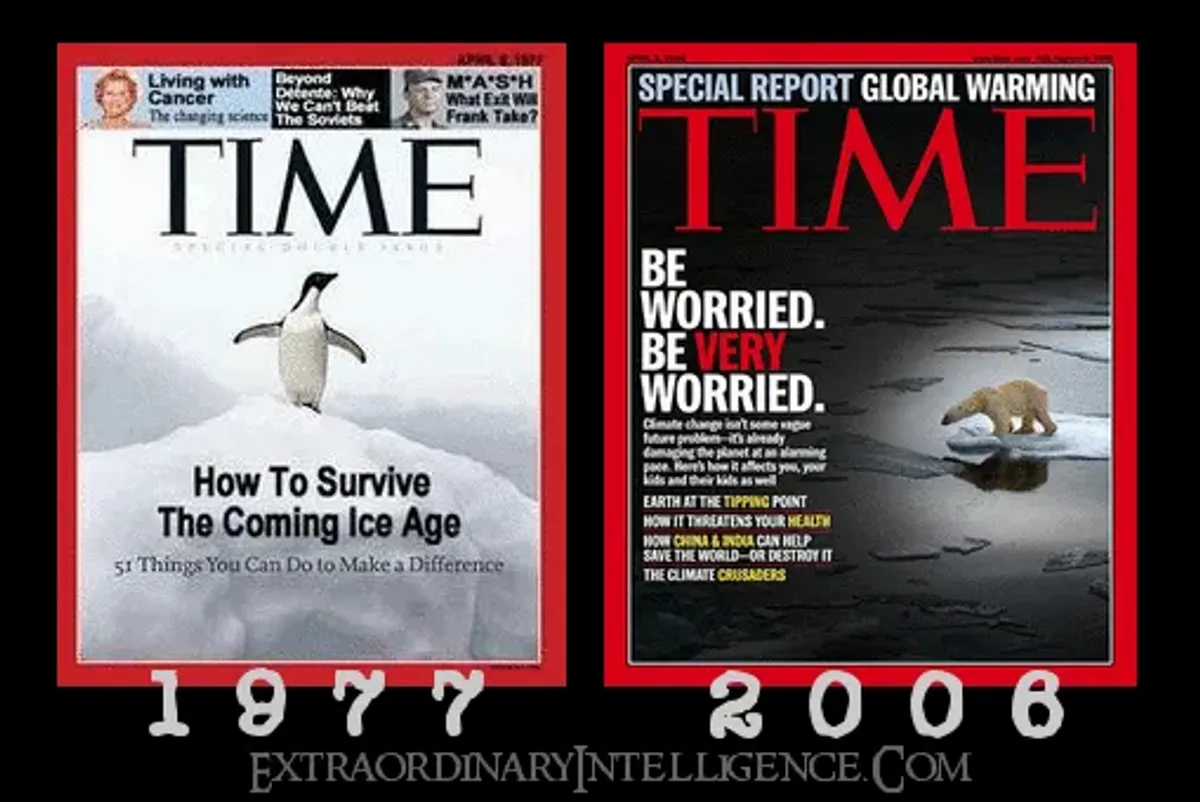Klimaat was een belangrijk agendapunt op de G7-Top die onlangs in het sprookjesachtige Slot Elmau in Duitsland heeft plaatsgevonden. De rapportage in de media was in het algemeen gunstig. Er zouden bindende regels zijn overeengekomen. En ook de reacties van de milieubeweging waren in het algemeen positief, alhoewel wèl werd erkend dat er een verschil is tussen woorden en daden.
Voor een realistischer evaluatie van wat de ‘Magnificent Seven’ hebben afgesproken is het echter nuttig om het communiqué erbij te pakken (het betrokken hoofdstuk is onder deze ‘posting’ als bijlage bijgevoegd). Daarin staat onder meer:
Urgent and concrete action is needed to address climate change, as set out in the IPCC’s Fifth Assessment Report. We affirm our strong determination to adopt at the Climate Change Conference in December in Paris this year (COP21) a protocol, another legal instrument or an agreed outcome with legal force under the United Nations Framework Convention on Climate Change (UNFCCC) applicable to all parties that is ambitious, robust, inclusive and reflects evolving national circumstances.
The agreement should enhance transparency and accountability including through binding rules at its core to track progress towards achieving targets, which should promote increased ambition over time. This should enable all countries to follow a low-carbon and resilient development pathway in line with the global goal to hold the increase in global average temperature below 2 °C.
Zoals ik al eerder elders heb geschreven berust de 2°C–doelstelling niet op wetenschap. Deze is ooit eens op een wetenschappelijke conferentie op voorstel Hans Joachim Schellnhuber, directeur van het ‘Potsdam Institut für Klimafolgenforschung’ (PIK), bij handopsteken aangenomen. Daarna is deze een eigen leven gaan leiden.
Hoe deze doelstelling moet worden bereikt is eveneens onduidelijk. Toegegeven, dat zal allemaal keurig zijn berekend met behulp van klimaatmodellen, die de huidige stand van de kennis in het klimaatsysteem belichamen. Maar die modellen zijn van beperkte waarde, hetgeen alleen al blijkt uit het feit dat zij de huidige opwarming’pauze’ niet hebben voorspeld (beter: geprojecteerd).
Voorts is het niet geheel duidelijk wat met ‘binding rules’ wordt bedoeld. Kennelijk gaat het niet om bindende afspraken over de reductie van de CO2–uitstoot, maar om iets anders: ‘binding rules […] to track progress to achieving targets …’ De snelle lezer, leest daar echter overheen en denkt nog steeds dat het over bindende CO2–reductiedoelstellingen gaat. Maar dat is niet het geval. Het is een meesterlijk vondst van de tekstschrijvers. Er staat niet wat de meeste mensen denken dat er staat.
Voor een kritische beoordeling van het resultaat van de G7-Top op het gebied van klimaat moeten we naar Canada, waar Peter Foster de uitkomst voor ons ontleed in de ‘Financial Post’ (dezelfde krant die ook het baanbrekende artikel van Marcel Crok over de hockeystick publiceerde, waarvoor Marcel de Glazen Griffioen ontving).
Onder de titel, ‘G7 kicks the climate can off the planet’, schreef Foster:
It’s a victory for Harper, and a sign that December’s UN meeting in Paris is doomed to fail The G7 this week committed to deal with greenhouse gas emissions on a similar timetable to the colonization of Mars. The group of leading developed countries solemnly pledged to “decarbonize” the world by 2100, thus kicking the can not so much down the road as off the planet.
This represents a clear victory for Prime Minister Stephen Harper’s refusal to inflict pointless economic damage. … Inevitably, in their desire to get at the Great Secret Climate Denier, the mainstream media and radical NGOs came at Harper from all sides. Either his participation in the G7 pledge was a major climb down, condemning his beloved oil sands to extinction (albeit after spending 85 years on death row), or it represented culpable procrastination, with an assist from that other Great Power bully, Japan.
Gullible/crusading reporters eagerly regurgitated the line – peddled by anonymous G7 flaks – that Canada and Japan had selfishly ganged up to prevent the stronger commitment that German Chancellor Angela Merkel had so desperately wanted to make. That is, the same kind of commitment that has left the EU’s energy policies a dysfunctional mess, and using more coal. The woman once dubbed “climate chancellor” is looking more and more like the queen of the lemmings.
The G7 did agree to an intermediate goal, emitting 70% less GHGs by 2050, and is still committed to keeping global temperatures from increasing more than 2 degrees Celsius (which should be a lot easier if the current hiatus and temperatures persist in not rising). ….
In reality (a condition that rarely crops up in climate world), the G7’s firm commitment to our great great great grandchildren is a clear signal – if any more signals are needed — that December’s COP meeting is doomed to failure: that is, failure to agree to crippling and likely pointless policies. Such failure was also adumbrated by yet another pre-COP draft text-writing bash in Bonn this week, where the G77 and the Alliance of Small Island States bemoaned the lack of progress in shipping them more cash. …
Aldus Peter Foster.
Lees verder hier.
Slotopmerkingen
Het voorgenomen beleid strekt zich uit over een dusdanig lange periode dat alle deelnemers aan de Elmau-Top niet meer in functie zullen zijn als de beloften waar moeten worden gemaakt en dus niet meer ter verantwoording kunnen worden geroepen.
Tegen die tijd zijn er bovendien wel weer andere problemen die prioriteit verdienen.
Het communiqué staat bol van de beleidsintenties, maar is vaag over de instrumenten. Een beleid zonder instrumenten is een slag in de lucht.
De G7 bestaat slechts uit 7 landen. Als de grote CO2–emittenten in de wereld, China, India en Brazilië, niet meedoen, zullen hun beleidsintenties geen deuk in een pakje boter slaan.
De beloofde 100 miljard per jaar klimaathulp aan de Derde Wereld zal er hoogst waarschijnlijk nooit komen. De westerse landen hebben eenvoudigweg te hoge schulden om zich extra verplichtingen ter zake op de hals te halen.
Voor mijn eerdere DDS–bijdragen zie hier.
– – –
Bijlage
G7 communiqué. Climate Change
Urgent and concrete action is needed to address climate change, as set out in the IPCC’s Fifth Assessment Report. We affirm our strong determination to adopt at the Climate Change Conference in December in Paris this year (COP21) a protocol, another legal instrument or an agreed outcome with legal force under the United Nations Framework Convention on Climate Change (UNFCCC) applicable to all parties that is ambitious, robust, inclusive and reflects evolving national circumstances.
The agreement should enhance transparency and accountability including through binding rules at its core to track progress towards achieving targets, which should promote increased ambition over time. This should enable all countries to follow a low-carbon and resilient development pathway in line with the global goal to hold the increase in global average temperature below 2 °C.
Mindful of this goal and considering the latest IPCC results, we emphasize that deep cuts in global greenhouse gas emissions are required with a decarbonisation of the global economy over the course of this century. Accordingly, as a common vision for a global goal of greenhouse gas emissions reductions we support sharing with all parties to the UNFCCC the upper end of the latest IPCC recommendation of 40 to 70 % reductions by 2050 compared to 2010 recognizing that this challenge can only be met by a global response.
We commit to doing our part to achieve a low-carbon global economy in the long-term including developing and deploying innovative technologies striving for a transformation of the energy sectors by 2050 and invite all countries to join us in this endeavor. To this end we also commit to develop long term national low-carbon strategies.
The G7 welcomes the announcement or proposal of post-2020 emission targets by all its members, as well as the submission of intended nationally determined contributions (INDC) and calls upon all countries to do so well in advance of COP21.
We reaffirm our strong commitment to the Copenhagen Accord to mobilizing jointly USD 100 billion a year by 2020 from a wide variety of sources, both public and private in the context of meaningful mitigation actions and transparency on implementation. Climate finance is already flowing at higher levels. We will continue our efforts to provide and mobilize increased finance, from public and private sources, and to demonstrate that we and others are well on our way to meet the USD 100 bn goal and that we stand ready to engage proactively in the negotiations of the finance provisions of the Paris outcome.
We recognize the potential of multilateral development banks (MDBs) in delivering climate finance and helping countries transition to low carbon economies. We call on MDBs to use to the fullest extent possible their balance sheets and their capacity to mobilize other partners in support of country-led programs to meet this goal. We thank the presidency for the publication of the Background Report on Long-Term Climate Finance and call for a further exchange in all relevant fora in view of COP 21. Mobilization of private sector capital is also crucial for achieving this commitment and unlocking the required investments in low-carbon technologies as well as in building resilience against the effects of climate change.
To overcome existing investment barriers finance models with high mobilization effects are needed. To this end, we will:
a) Intensify our support particularly for vulnerable countries’ own efforts to manage climate change related disaster risk and to build resilience. We will aim to increase by up to 400 million the number of people in the most vulnerable developing countries who have access to direct or indirect insurance coverage against the negative impact of climate change related hazards by 2020 and support the development of early warning systems in the most vulnerable countries.
To do so we will learn from and build on already existing risk insurance facilities such as the African Risk Capacity, the Caribbean Catastrophe Risk Insurance Facility and other efforts to develop insurance solutions and markets in vulnerable regions, including in small islands developing states, Africa, Asia and Pacific, Latin America and the Caribbean as set out in the annex.
b) Accelerate access to renewable energy in Africa and developing countries in other regions with a view to reducing energy poverty and mobilizing substantial financial resources from private investors, development finance institutions and multilateral development banks by 2020 building on existing work and initiatives, including by the Global Innovation Lab for Climate Finance as set out in the annex. We also reaffirm our ambition to make the Green Climate Fund fully operational in 2015 and a key institution of the future climate finance architecture.
We remain committed to the elimination of inefficient fossil fuel subsidies and encourage all countries to follow and we remain committed to continued progress in the OECD discussions on how export credits can contribute to our common goal to address climate change. We pledge to incorporate climate mitigation and resilience considerations into our development assistance and investment decisions.
We will continue our efforts to phase down hydrofluorocarbons (HFCs) and call on all Parties to the Montreal Protocol to negotiate an amendment this year to phase down HFCs and on donors to assist developing countries in its implementation. In order to incentivize investments towards low-carbon growth opportunities we commit to the long-term objective of applying effective policies and actions throughout the global economy, including carbon market-based and regulatory instruments and call on other countries to join us. We are committed to establishing a platform for a strategic dialogue on these issues based on voluntary participation and in cooperation with relevant partners, including the World Bank.







Papier is geduldig. Van uitstel komt afstel.
Er hangt anders wel een enorm prijskaartje aan dat afstel en die prijs loopt enorm op.
In Duitsland waar zo zoetjes aan iedereen wel door krijgt hoe duur het wordt en hoe weinig (niks, naks, noks) je ervoor terug krijgt, wil dit voortschrijdende inzicht maar niet leiden tot een zakelijke herbezinning.
In Nederland trouwens ook niet: Het grote bedrijfsleven zit helemaal op het spoor van klimaatgedreven “duurzaamheid”. Banken verzinnen zelf hun duurzaamheidscriteria (uiteraard met het mes van de NGO’s op de keel) aan de hand waarvan zijn hun zakelijke klanten beoordelen. Unilver knokt om een plekkie in de duurzame top 100 en vorige week nog riep de CEO van Shell op tot samenwerking op tot verduurzaming van de energie productie. Dat laatste is begrijpelijk; Shell wil z’n voorsprong in gas te gelde maken. Maar maak Marianne-als-u-één-gehaktbal-per-maand-minder-eet-hebben-de-Bengalen-tien-jaar-lang-schoon-drinkwater-Thieme maar eens wijs dat dat een stukduurzamer is dan 15e eeuws woeitechniek.
Dat alles uiteraard voor een gifgroen geschilderde bühne gevuld met braaf goedvolk dat denkt een enkeltje Hemel in de verder leeggehaalde kontzak te hebben.
100 miljard…. wauw.
Van de G7, wauw. Ik ben onder de indruk…. not.
Alleen al in dit kikkerlandje gaan we 73 miljard uitgeven aan het energie “akkoord”….
Met één verschil; die 73 miljard komt niet uit de staatskas maar wordt d.m.v. allerlei “toeslagen” rechtstreeks bij de burger gestolen en vervolgens doorgesluisd naar het grootkapitaal.
Ronel, niet geheel juist. Over water en energietoeslag wordt ook nog BTW geheven. En die gaat wel in de Staatskas, oh wacht, naar Europa.
Waar Merkel dan de ECB risicovolle staatsleningen laat opkopen welke in bezit zijn-waren van de banken. Publiek geld om privaat geld te redden. That’s how it rules. En nog is er geen volksopstand.
Gelukkig ben ik niet de enige die onvolledige informatie geeft … :) big grin (:
Hans, welkom, een prima openingszet.
De weg naar de economische en maatschappelijke ineenstorting van het Westen is geplaveid met goede voornemens.
Stel voorop, dat bijna alle landen lid zijn van de UNFCCC en daardoor zekere verplichtingen hebben.
Terwijl IPCC aanhangers wellicht Harper bekritiseren kunnen wij de recente ontwikkelingen alleen maar toejuichen. De streefdatum voor GHG vermindering wordt uitgesteld.
Harper kon wel uit het Kyoto Protocol stappen – en deed dat ook – maar het lidmaatschap van Canada in UNFCCC vereist dat hij in het koor blijft zingen.
Maar wat doen de andere koorzangers?
De media van de wereld stellen het US-China accoord voor als een overwinning voor environment, maar China stelt een streefdatum zo ver in de toekomst dat het waardeloos is.
Vandaag heeft Zuid Korea ook verklaard zijn verplichtingen te verminderen. Japan en Australië trekken zich terug van de economische afgrond.
Daarom is het G7 resultaat een afgang voor Merkel en een klap voor haar plannen om de EU als leidende partij naar een “succesvolle” COP21 te brengen.
De “warmists” van de wereld worden zenuwachtig. Er is een lawine van onbeduidende publicaties (NCDC’s Director Karl spant de kroon tot nog toe) en het Propaganda Ministeriuim draait op volle toeren.
De Parijse conferentie zal uiteindelijk als resultaat hebben een “kicking the can down the road”.